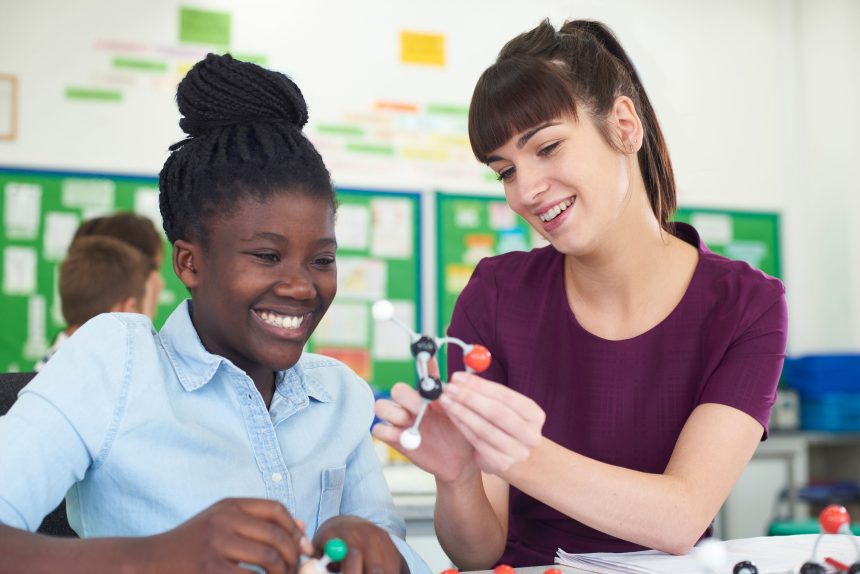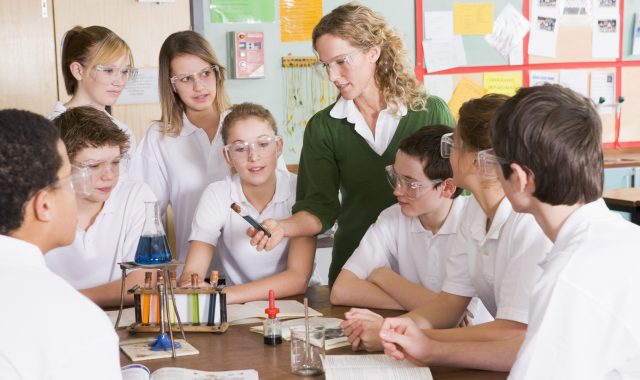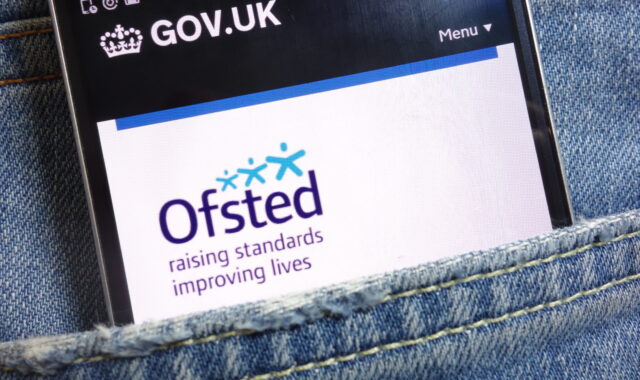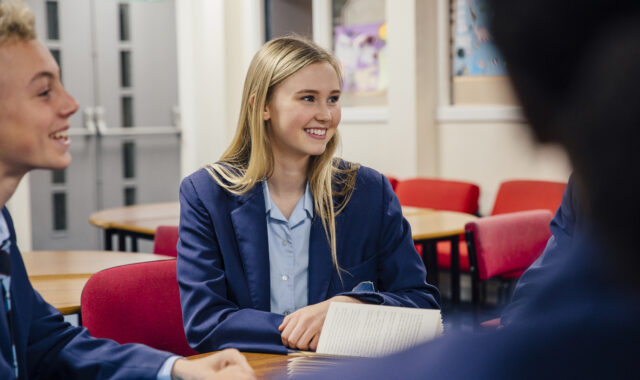Contents:
This blog post is aimed at ITT students, NQTs and ECTs. It might also be useful for those who are experienced teachers but new to teaching Science.
Hopefully when you begin teaching Science you are in a Biology, Chemistry or Physics department within a school which has well established resources, schemes of work, class sets of textbooks and booklets, and supportive and knowledgeable teaching and technical colleagues, who will aid you every step of the way. However, in reality, sometimes not all of these aspects are always in place.
Here are some tips and ideas to help you in your first year teaching Science, whether you have this support in place or not.
Planning
Firstly, whether it is KS3, GCSE or A Level that you are teaching, there needs to be a plan of what topics are taught when throughout the school year and by which member of staff (if sharing a class). This can be found in a scheme of work or similar document. If this doesn’t exist, asking teacher or technician colleagues is the first port of call. For exam-based courses, most exam boards have published free basic schemes of work and other useful documents. It is always worth checking what other resources the board has published as they can be useful in lots of ways during the year. Similarly, if your school subscribes to a specific published KS3 package, there will be a teacher guide or scheme of work available from them too.
For most courses there will be a preferred textbook and it is key to have a copy to hand when planning your lessons. Examined courses will have a published current specification, which is perhaps the most important document to regularly interrogate throughout your first few years teaching these courses.
In addition to textbooks for the course, it is important to find out what the recommended subject texts for teachers to use are, when planning lessons and upskilling. For example in Physics, books like Advanced Physics by Adams and Allday and A Level Physics by Muncaster are very useful for teachers to read prior to teaching new topics.

Resources
In terms of using resources like PowerPoints and worksheets, it is great if you are supplied with, or can find, pre-made resources. However, it is always worth checking to make sure that all specification content is covered by such resources and to an appropriate level.
Retrieval roulettes are a great tool to use in the classroom. Nowadays, there are sets available for most topics and subjects on the internet, usually in the form of an Excel file. Social media can be a great tool for teachers at any stage of their career. On Twitter and other platforms, there are lots of teachers and technicians who kindly share advice, tips and resources.
For end of topic assessments in exam-based courses, it is important to utilise exam questions from that awarding body, throughout the course. Exam boards each have distinctive styles when it comes to questions and students will benefit markedly from practising such questions throughout their course, not just in the revision stage towards the end.
Marking
One thing to bear in mind early on is that you need to decide what needs to be teacher marked and what could also be peer or self-marked by the pupils. You cannot mark everything and some activities are best reviewed by the pupils themselves. Utilise online platforms like Microsoft Forms and Google Forms. They can be powerful tools in identifying areas of weakness and minimising marking time.

Practicals
From a practical perspective, safety is paramount in the Science lab and you will need to be familiar with and have practised beforehand, all experiments and demonstrations before you carry them out in the classroom. Suitable safety equipment will need to be requested and will depend on the experiment being performed. Regularly speak with your technician. They can be extremely helpful, explaining nuances and pitfalls of various bits of kit. CLEAPSS is a great organisation and many schools have subscriptions to their resources and documentation for experimental work.
These are just some initial tips, I hope you have found them helpful.







Comments